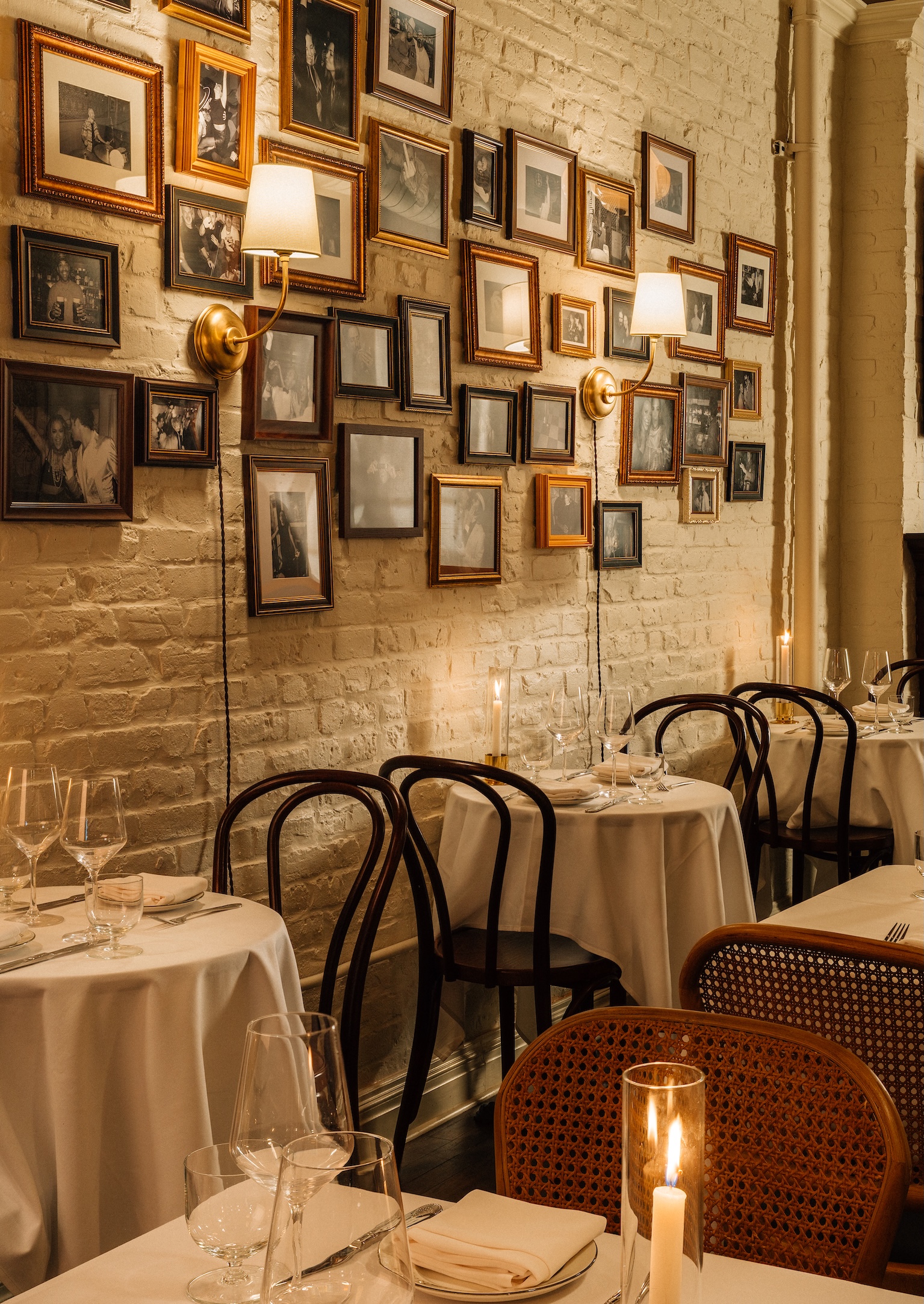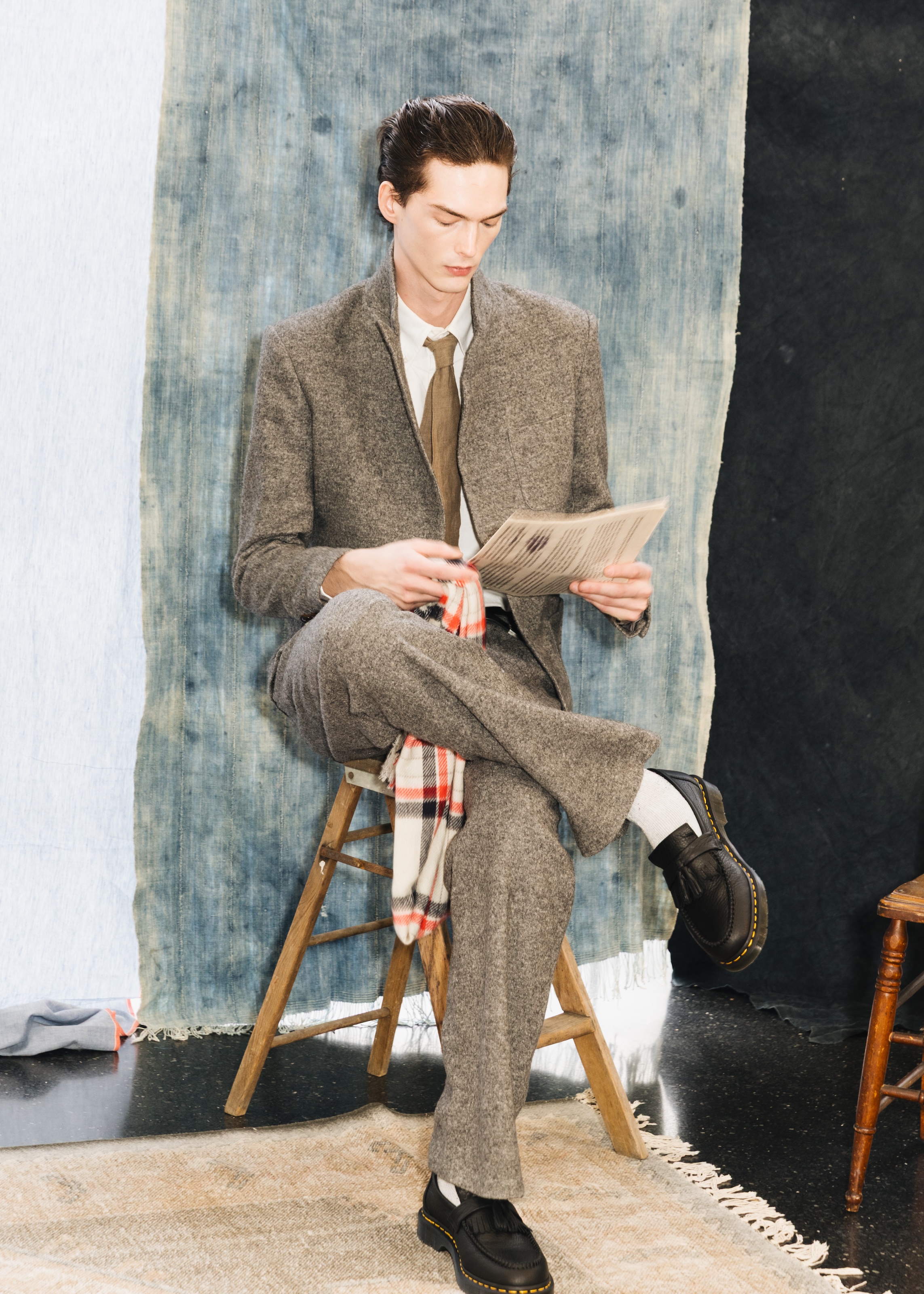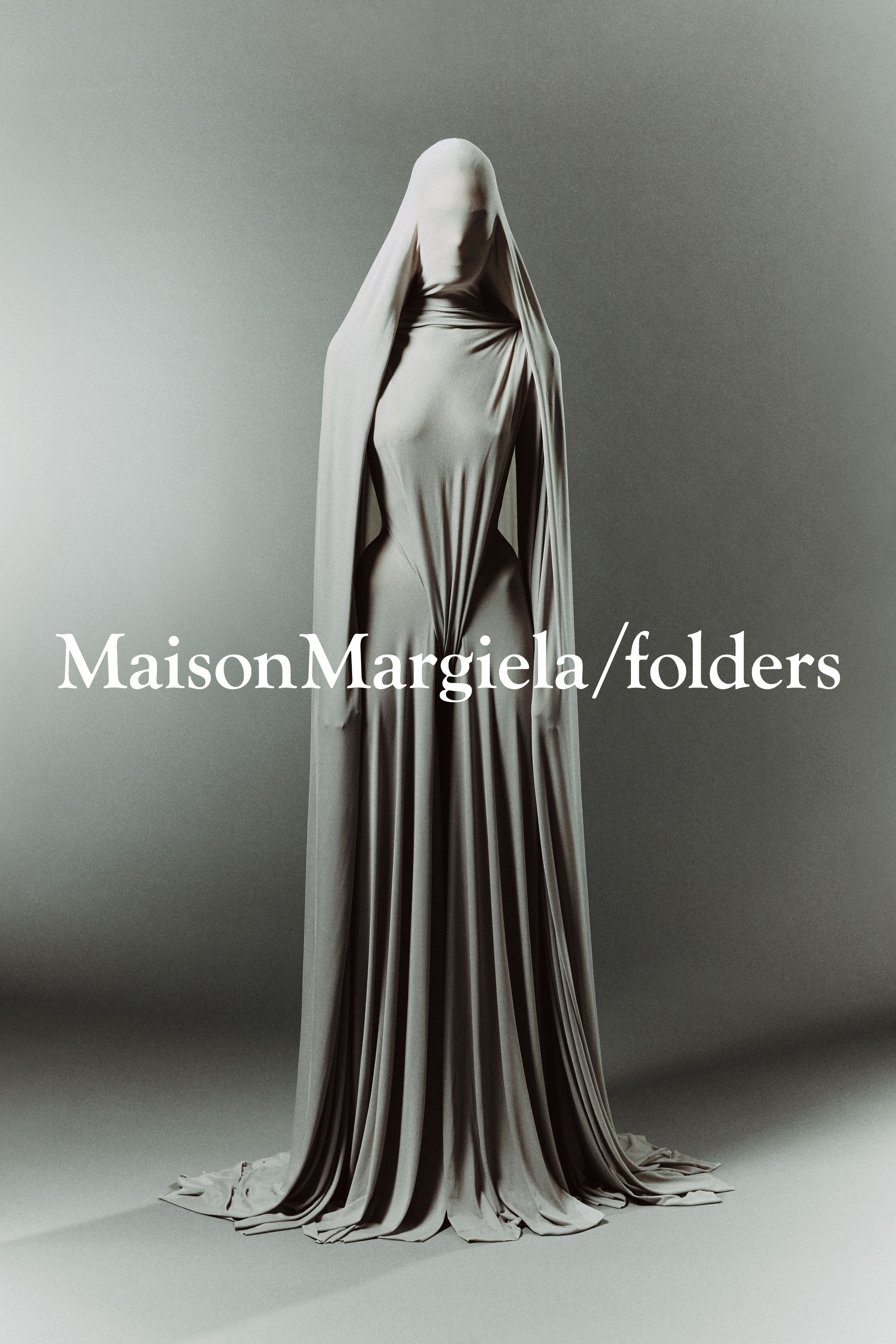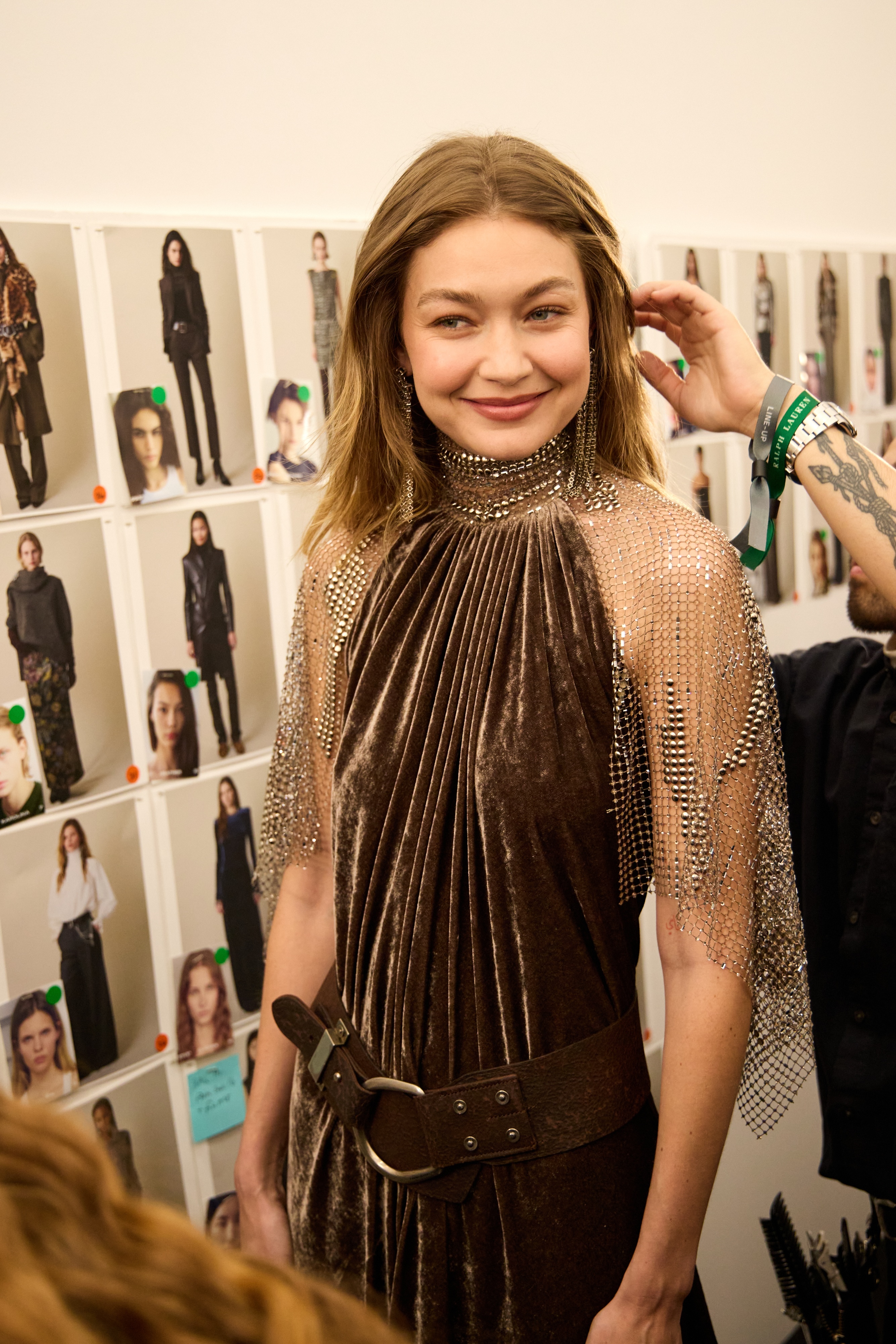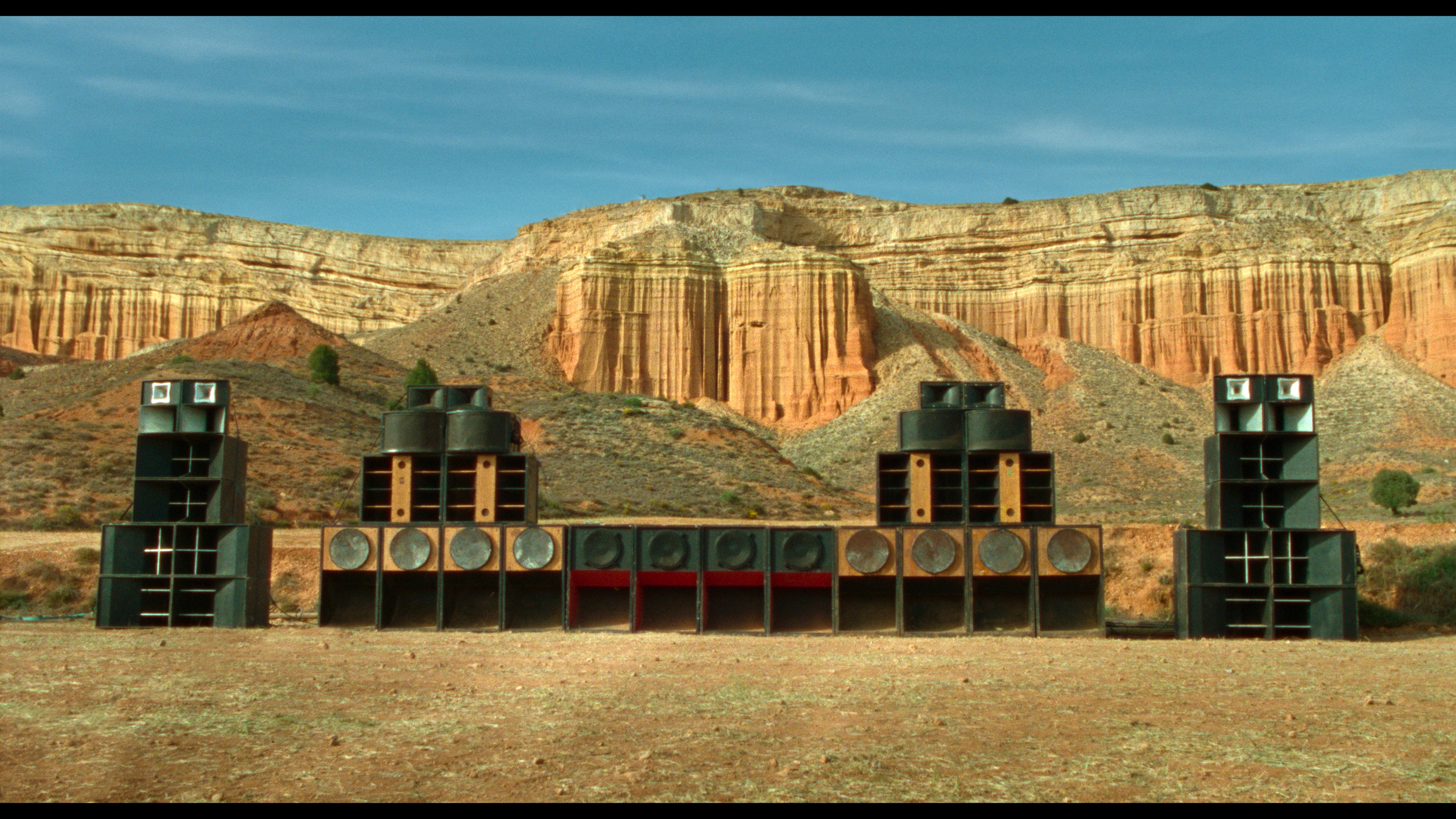

There is a distinctly haunted quality to the photographic output of artist Lorena Lohr that seems to perfectly capture the existential anxieties of our era–especially in the wake of the pandemic, which gave reality a peculiarly lonely apocalyptic shade in the last two years. The composition of her images is immaculately considered, giving them a painterly quality, and the scenes she shoots of empty car seats, abandoned parking lots and worn advertising signs contain a profound otherness that goes far beyond the all-too-easy clichéd tag of Americana. Her work explores a residual energy that seems to communicate temporality and the transience of the human condition–hatching questions in the viewer’s mind as to what has previously transpired in the spaces she is inviting them to step into. Here, the always modest British-American image-maker explains the genesis of her artistic practice, and tells us why the most mundane scenes from everyday life in the USA can swing open the saloon doors of perception.


**How did you begin your journey into photography–why was it an artistic form that spoke to you?**
It was a progressive process that developed by chance, and over a relatively long time, beginning from finding a cheap film camera when I was 17 years old. When you’re growing up a lot of things are sacred because they haven’t happened to you before–you’re going your own way for the first time–so I would try to remember different events by arranging scrapbooks, and then by taking photographs. Because one thing seemed just as significant to me as the next, the photographs somehow ended up being more of the corners of–and of smaller objects–than of any people I might have been sharing any kind of experience with. I guess I found that certain details that otherwise could be overlooked could trigger memory and wonder just as much as more blatantly sensational events.
**When did you first take this pursuit on the road?**
I started traveling around America by bus and by train when I was 19, on multi-ride Greyhound bus passes, which allow you to take unlimited trips for a period of two weeks, one month, or three months. The first time was a three-day cross-country bus ride from the East to West coast, and I began to record all the towns that I passed through, all the bus stations, motels and streets–as well as the landscapes that connected them. Because I was always filling in books, doing rough drawings and sticking in found things like flattened cigarette packages, discarded images, branded bar advertisements, notes passed from person to person, all that kind of stuff–it seemed natural that when I got my films developed the photos should go in sequence in some kind of book or zine, to mark off a time that had since passed, and then begin something else new. I started printing off small publications on a home printer, and then over time I began to get runs of zines printed at a print shops. From just handing them out to friends or people I met, they begun being taken in by bookshops, and this practice of collating images into smaller chapters of one larger series has continued to this day.


**Why were you drawn to shoot places off-the-beaten-track?**
It became vital to me to make a record of the small towns that are connected by bus and rail throughout America–places which are for the most part isolated and rendered invisible by commerce in the bigger cities, but which each have their own highly specific and nuanced character. The camera made it possible to express that the objects and structures in any given town, and at any certain time, could tell the narrative of not only my life but other people’s, in a manner that didn’t require words but still evoked a secret history that was always unfolding. It made these things permanent, whereas in real life they might just be glimpsed at and forgotten.
**What interests you in shooting empty spaces, such as the back seats of cars?**
These spaces aren’t particularly empty to me, in that that they can provide an alternative portrait of the person or people that have existed in them previously. Someone has been here, building things up, taking them apart, and having experiences there that might have even dictated the path of their lives. Even an object that could be so easily thrown away for one person could have had a great importance to someone else at another time. After all, scenes from everyday life are often constructed around particular objects, such as a chair, kitchen utensils, walls that both conceal and reveal, a drink, or a door that leads to another destination.




**Are you trying to draw the viewer into the space?**
I’m not trying to steer the viewer into looking into any of this in any particular way, as the subject of the photographs–much like the everyday lives that have made the structures that I have depicted–are for the most part multifaceted and defiant of simple interpretation. The viewer can think what they like, but at the same time, if the photos help in some small way to assist others in seeing that these seemingly uninhabited spaces are, in many ways, as alive as the people who have created them, and to remind others of the importance of the stories that have played out over them, then that is important to me.
**What would you say to someone who described your work as Americana?**
I don’t really think of this subject matter as Americana. For one thing, that word suggests seeing America from quite a detached viewpoint of another place. On a personal level, I don’t think I’m shooting in America from a foreign perspective–my family have lived around the country since before I was born, and I have been going around there since I was young. More generally speaking, I don’t like the foreignness suggested by ‘Americana’ as it is really not all that foreign to people throughout the developed world. Really, the motifs from American mythology aren’t completely American–they come from mass migration and are repeated all over the world, entwining with other cultures to build up to a universal language of signs and symbols. The only thing I like about the word ‘Americana' is its relation to cliché. I'm kind of transfixed by how–in even the most clichéd images from the catalogue of ‘Americana’–there is a deep mystery to explore, as if the more we look at these things, the more we have the possibility of discovering.


**Why does America seem so particularly fascinating to you?**
American stories have always been laced with a sense of impermanence, a sense that everything is not going to last. It is still (by comparison to the rest of the world) a new country and frontier, and most of the structures there haven’t existed for all that long. Unlike in Europe, the buildings in the States are not made to last forever–there is an acceptance in the USA that renewal and demolition are integral to progress, a part of life. This acceptance of destruction and loss could only be possible in a country whose people are as mobile and transient as they are. I actually find most places fascinating, as the past remains visible and tangible on the walls and in the structures of any place, even in very developed cities. But I suppose for one reason or another, I feel this most strongly in America.




 
There is a distinctly haunted quality to the photographic output of artist Lorena Lohr that seems to perfectly capture the existential anxieties of our era–especially in the wake of the pandemic, which gave reality a peculiarly lonely apocalyptic shade in the last two years. The composition of her images is immaculately considered, giving them a painterly quality, and the scenes she shoots of empty car seats, abandoned parking lots and worn advertising signs contain a profound otherness that goes far beyond the all-too-easy clichéd tag of Americana. Her work explores a residual energy that seems to communicate temporality and the transience of the human condition–hatching questions in the viewer’s mind as to what has previously transpired in the spaces she is inviting them to step into. Here, the always modest British-American image-maker explains the genesis of her artistic practice, and tells us why the most mundane scenes from everyday life in the USA can swing open the saloon doors of perception.

There is a distinctly haunted quality to the photographic output of artist Lorena Lohr that seems to perfectly capture the existential anxieties of our era–especially in the wake of the pandemic, which gave reality a peculiarly lonely apocalyptic shade in the last two years. The composition of her images is immaculately considered, giving them a painterly quality, and the scenes she shoots of empty car seats, abandoned parking lots and worn advertising signs contain a profound otherness that goes far beyond the all-too-easy clichéd tag of Americana. Her work explores a residual energy that seems to communicate temporality and the transience of the human condition–hatching questions in the viewer’s mind as to what has previously transpired in the spaces she is inviting them to step into. Here, the always modest British-American image-maker explains the genesis of her artistic practice, and tells us why the most mundane scenes from everyday life in the USA can swing open the saloon doors of perception.
 
**How did you begin your journey into photography–why was it an artistic form that spoke to you?**
It was a progressive process that developed by chance, and over a relatively long time, beginning from finding a cheap film camera when I was 17 years old. When you’re growing up a lot of things are sacred because they haven’t happened to you before–you’re going your own way for the first time–so I would try to remember different events by arranging scrapbooks, and then by taking photographs. Because one thing seemed just as significant to me as the next, the photographs somehow ended up being more of the corners of–and of smaller objects–than of any people I might have been sharing any kind of experience with. I guess I found that certain details that otherwise could be overlooked could trigger memory and wonder just as much as more blatantly sensational events.
**When did you first take this pursuit on the road?**
I started traveling around America by bus and by train when I was 19, on multi-ride Greyhound bus passes, which allow you to take unlimited trips for a period of two weeks, one month, or three months. The first time was a three-day cross-country bus ride from the East to West coast, and I began to record all the towns that I passed through, all the bus stations, motels and streets–as well as the landscapes that connected them. Because I was always filling in books, doing rough drawings and sticking in found things like flattened cigarette packages, discarded images, branded bar advertisements, notes passed from person to person, all that kind of stuff–it seemed natural that when I got my films developed the photos should go in sequence in some kind of book or zine, to mark off a time that had since passed, and then begin something else new. I started printing off small publications on a home printer, and then over time I began to get runs of zines printed at a print shops. From just handing them out to friends or people I met, they begun being taken in by bookshops, and this practice of collating images into smaller chapters of one larger series has continued to this day.

**How did you begin your journey into photography–why was it an artistic form that spoke to you?**
It was a progressive process that developed by chance, and over a relatively long time, beginning from finding a cheap film camera when I was 17 years old. When you’re growing up a lot of things are sacred because they haven’t happened to you before–you’re going your own way for the first time–so I would try to remember different events by arranging scrapbooks, and then by taking photographs. Because one thing seemed just as significant to me as the next, the photographs somehow ended up being more of the corners of–and of smaller objects–than of any people I might have been sharing any kind of experience with. I guess I found that certain details that otherwise could be overlooked could trigger memory and wonder just as much as more blatantly sensational events.
**When did you first take this pursuit on the road?**
I started traveling around America by bus and by train when I was 19, on multi-ride Greyhound bus passes, which allow you to take unlimited trips for a period of two weeks, one month, or three months. The first time was a three-day cross-country bus ride from the East to West coast, and I began to record all the towns that I passed through, all the bus stations, motels and streets–as well as the landscapes that connected them. Because I was always filling in books, doing rough drawings and sticking in found things like flattened cigarette packages, discarded images, branded bar advertisements, notes passed from person to person, all that kind of stuff–it seemed natural that when I got my films developed the photos should go in sequence in some kind of book or zine, to mark off a time that had since passed, and then begin something else new. I started printing off small publications on a home printer, and then over time I began to get runs of zines printed at a print shops. From just handing them out to friends or people I met, they begun being taken in by bookshops, and this practice of collating images into smaller chapters of one larger series has continued to this day.
 
**Why were you drawn to shoot places off-the-beaten-track?**
It became vital to me to make a record of the small towns that are connected by bus and rail throughout America–places which are for the most part isolated and rendered invisible by commerce in the bigger cities, but which each have their own highly specific and nuanced character. The camera made it possible to express that the objects and structures in any given town, and at any certain time, could tell the narrative of not only my life but other people’s, in a manner that didn’t require words but still evoked a secret history that was always unfolding. It made these things permanent, whereas in real life they might just be glimpsed at and forgotten.
**What interests you in shooting empty spaces, such as the back seats of cars?**
These spaces aren’t particularly empty to me, in that that they can provide an alternative portrait of the person or people that have existed in them previously. Someone has been here, building things up, taking them apart, and having experiences there that might have even dictated the path of their lives. Even an object that could be so easily thrown away for one person could have had a great importance to someone else at another time. After all, scenes from everyday life are often constructed around particular objects, such as a chair, kitchen utensils, walls that both conceal and reveal, a drink, or a door that leads to another destination.

**Why were you drawn to shoot places off-the-beaten-track?**
It became vital to me to make a record of the small towns that are connected by bus and rail throughout America–places which are for the most part isolated and rendered invisible by commerce in the bigger cities, but which each have their own highly specific and nuanced character. The camera made it possible to express that the objects and structures in any given town, and at any certain time, could tell the narrative of not only my life but other people’s, in a manner that didn’t require words but still evoked a secret history that was always unfolding. It made these things permanent, whereas in real life they might just be glimpsed at and forgotten.
**What interests you in shooting empty spaces, such as the back seats of cars?**
These spaces aren’t particularly empty to me, in that that they can provide an alternative portrait of the person or people that have existed in them previously. Someone has been here, building things up, taking them apart, and having experiences there that might have even dictated the path of their lives. Even an object that could be so easily thrown away for one person could have had a great importance to someone else at another time. After all, scenes from everyday life are often constructed around particular objects, such as a chair, kitchen utensils, walls that both conceal and reveal, a drink, or a door that leads to another destination.
 

 
**Are you trying to draw the viewer into the space?**
I’m not trying to steer the viewer into looking into any of this in any particular way, as the subject of the photographs–much like the everyday lives that have made the structures that I have depicted–are for the most part multifaceted and defiant of simple interpretation. The viewer can think what they like, but at the same time, if the photos help in some small way to assist others in seeing that these seemingly uninhabited spaces are, in many ways, as alive as the people who have created them, and to remind others of the importance of the stories that have played out over them, then that is important to me.
**What would you say to someone who described your work as Americana?**
I don’t really think of this subject matter as Americana. For one thing, that word suggests seeing America from quite a detached viewpoint of another place. On a personal level, I don’t think I’m shooting in America from a foreign perspective–my family have lived around the country since before I was born, and I have been going around there since I was young. More generally speaking, I don’t like the foreignness suggested by ‘Americana’ as it is really not all that foreign to people throughout the developed world. Really, the motifs from American mythology aren’t completely American–they come from mass migration and are repeated all over the world, entwining with other cultures to build up to a universal language of signs and symbols. The only thing I like about the word ‘Americana' is its relation to cliché. I'm kind of transfixed by how–in even the most clichéd images from the catalogue of ‘Americana’–there is a deep mystery to explore, as if the more we look at these things, the more we have the possibility of discovering.

**Are you trying to draw the viewer into the space?**
I’m not trying to steer the viewer into looking into any of this in any particular way, as the subject of the photographs–much like the everyday lives that have made the structures that I have depicted–are for the most part multifaceted and defiant of simple interpretation. The viewer can think what they like, but at the same time, if the photos help in some small way to assist others in seeing that these seemingly uninhabited spaces are, in many ways, as alive as the people who have created them, and to remind others of the importance of the stories that have played out over them, then that is important to me.
**What would you say to someone who described your work as Americana?**
I don’t really think of this subject matter as Americana. For one thing, that word suggests seeing America from quite a detached viewpoint of another place. On a personal level, I don’t think I’m shooting in America from a foreign perspective–my family have lived around the country since before I was born, and I have been going around there since I was young. More generally speaking, I don’t like the foreignness suggested by ‘Americana’ as it is really not all that foreign to people throughout the developed world. Really, the motifs from American mythology aren’t completely American–they come from mass migration and are repeated all over the world, entwining with other cultures to build up to a universal language of signs and symbols. The only thing I like about the word ‘Americana' is its relation to cliché. I'm kind of transfixed by how–in even the most clichéd images from the catalogue of ‘Americana’–there is a deep mystery to explore, as if the more we look at these things, the more we have the possibility of discovering.
 
**Why does America seem so particularly fascinating to you?**
American stories have always been laced with a sense of impermanence, a sense that everything is not going to last. It is still (by comparison to the rest of the world) a new country and frontier, and most of the structures there haven’t existed for all that long. Unlike in Europe, the buildings in the States are not made to last forever–there is an acceptance in the USA that renewal and demolition are integral to progress, a part of life. This acceptance of destruction and loss could only be possible in a country whose people are as mobile and transient as they are. I actually find most places fascinating, as the past remains visible and tangible on the walls and in the structures of any place, even in very developed cities. But I suppose for one reason or another, I feel this most strongly in America.

**Why does America seem so particularly fascinating to you?**
American stories have always been laced with a sense of impermanence, a sense that everything is not going to last. It is still (by comparison to the rest of the world) a new country and frontier, and most of the structures there haven’t existed for all that long. Unlike in Europe, the buildings in the States are not made to last forever–there is an acceptance in the USA that renewal and demolition are integral to progress, a part of life. This acceptance of destruction and loss could only be possible in a country whose people are as mobile and transient as they are. I actually find most places fascinating, as the past remains visible and tangible on the walls and in the structures of any place, even in very developed cities. But I suppose for one reason or another, I feel this most strongly in America.
 

 

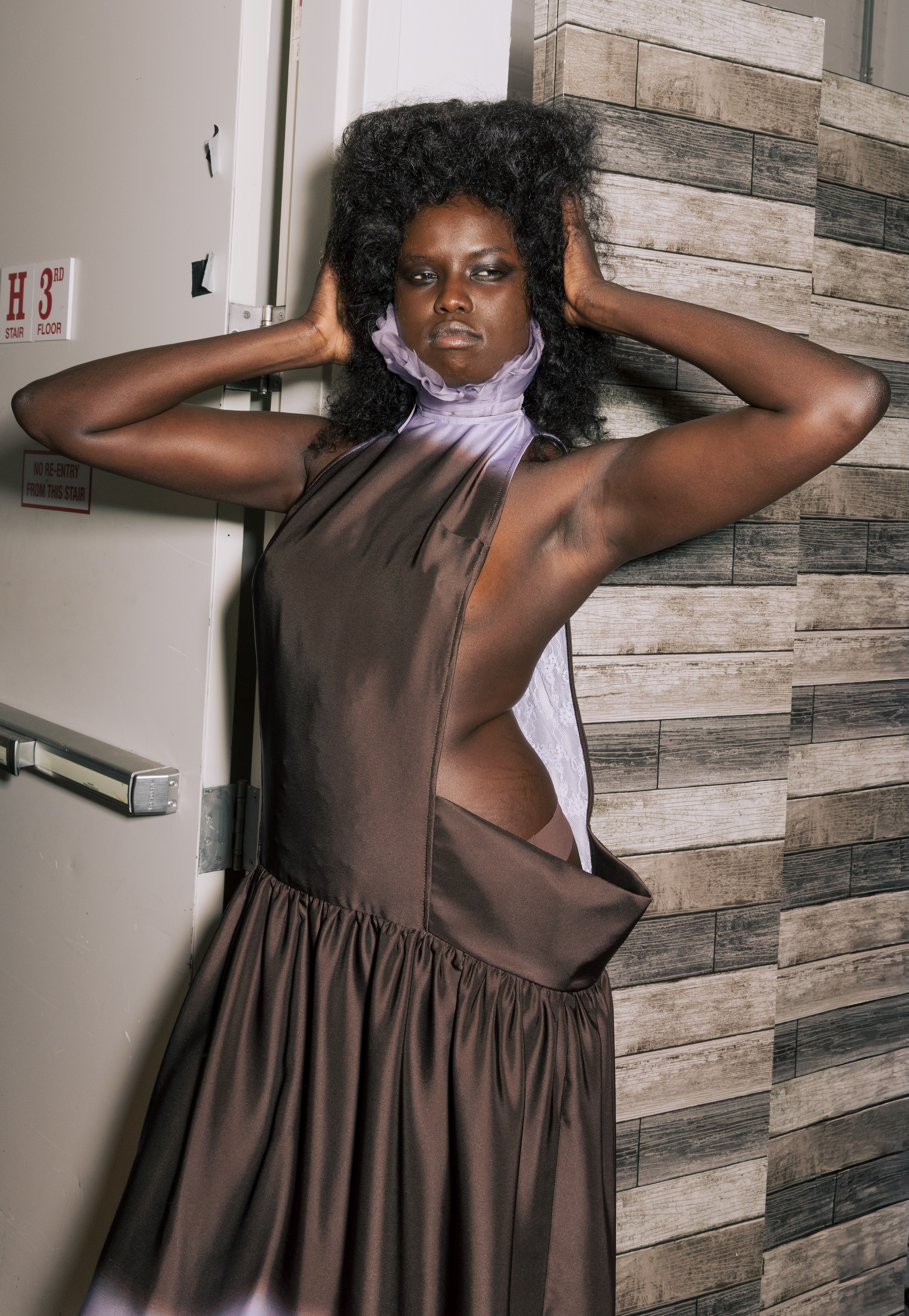
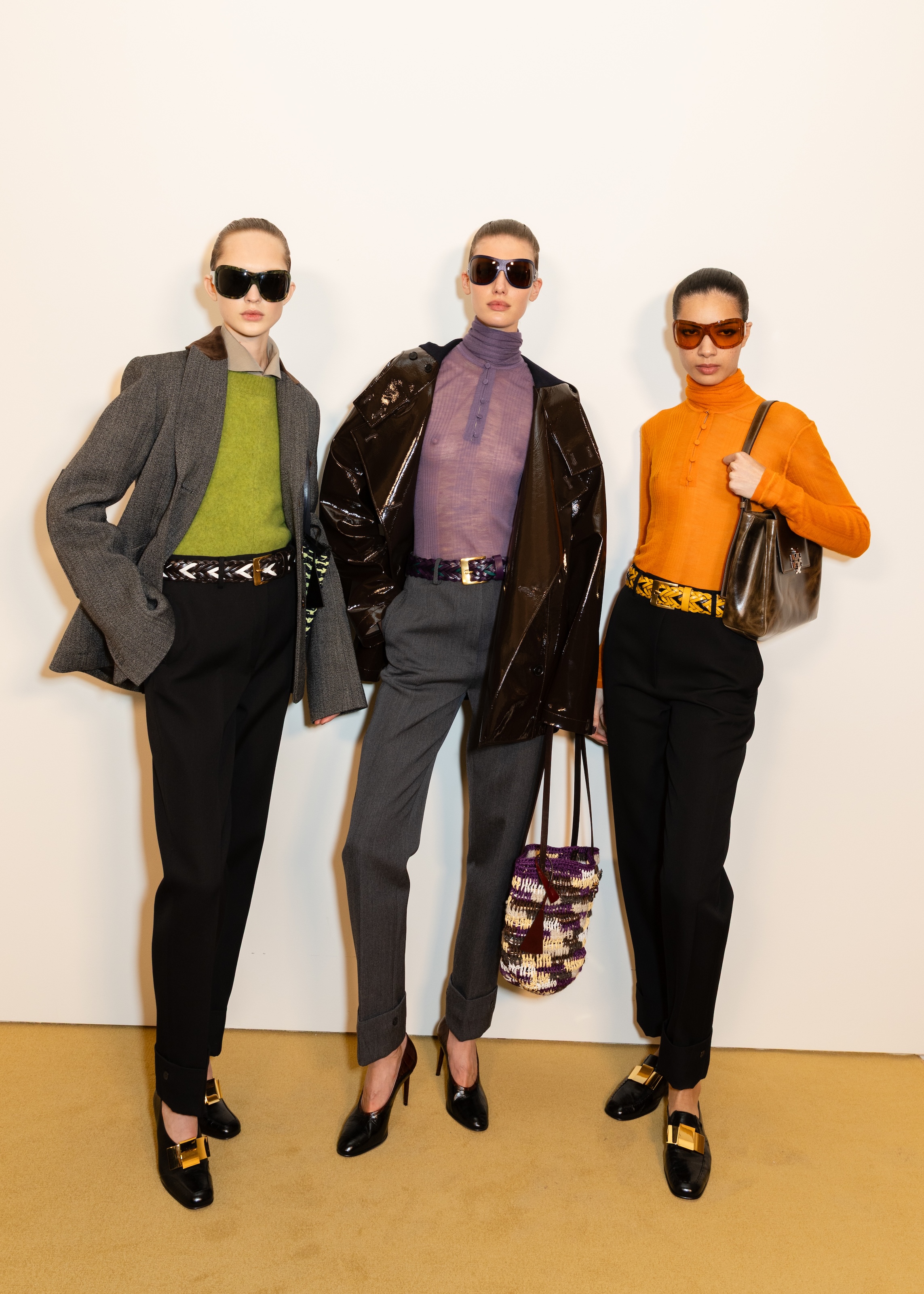
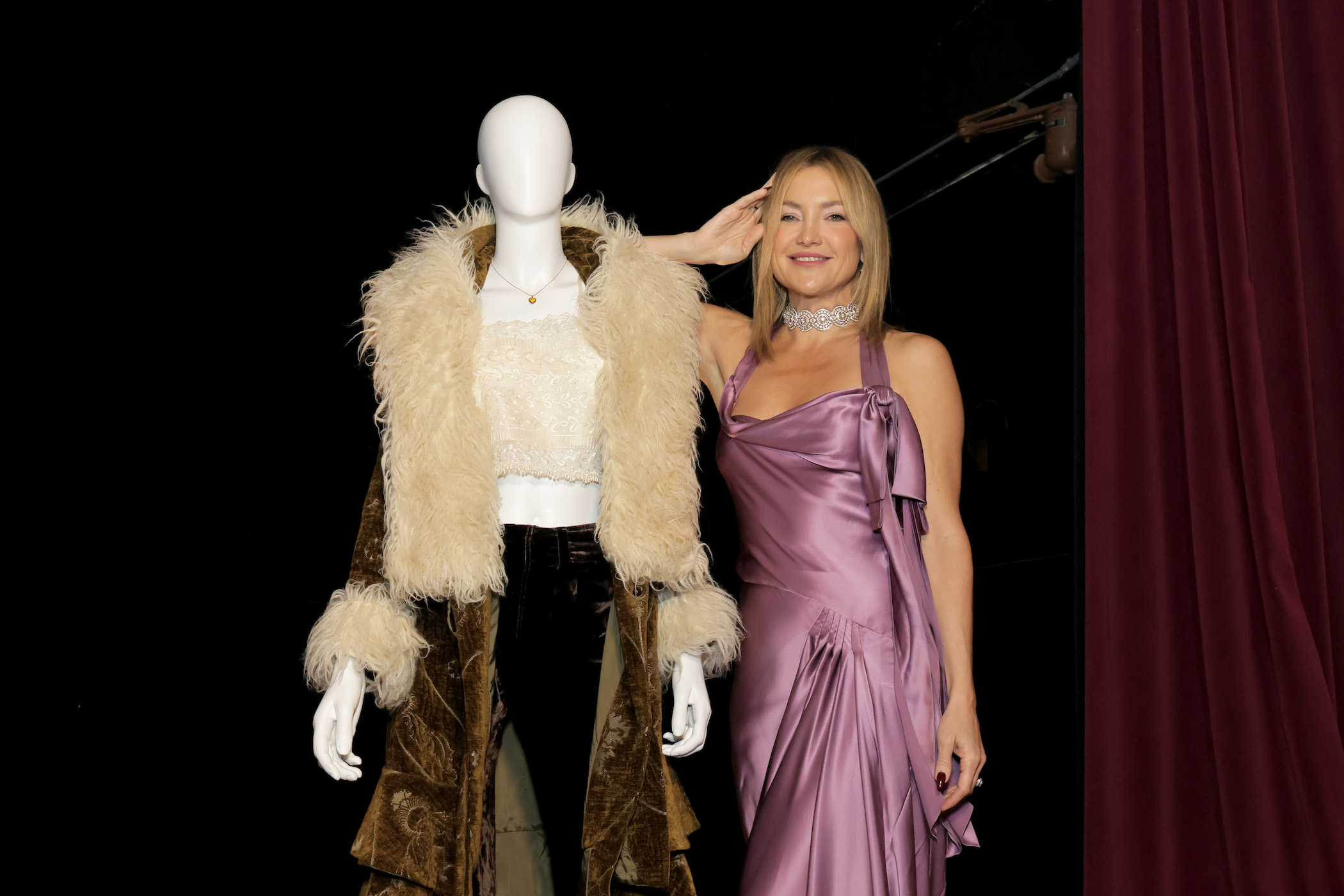
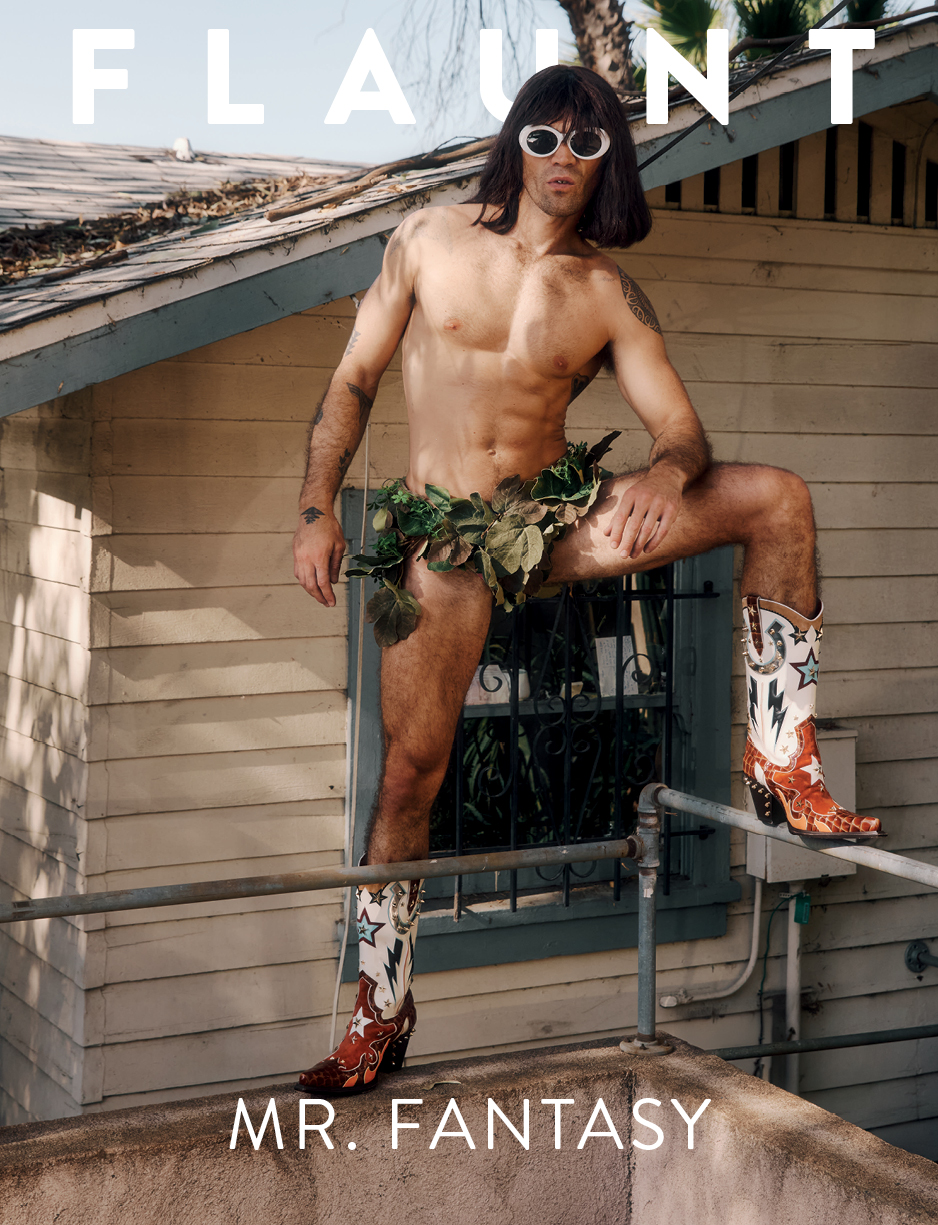
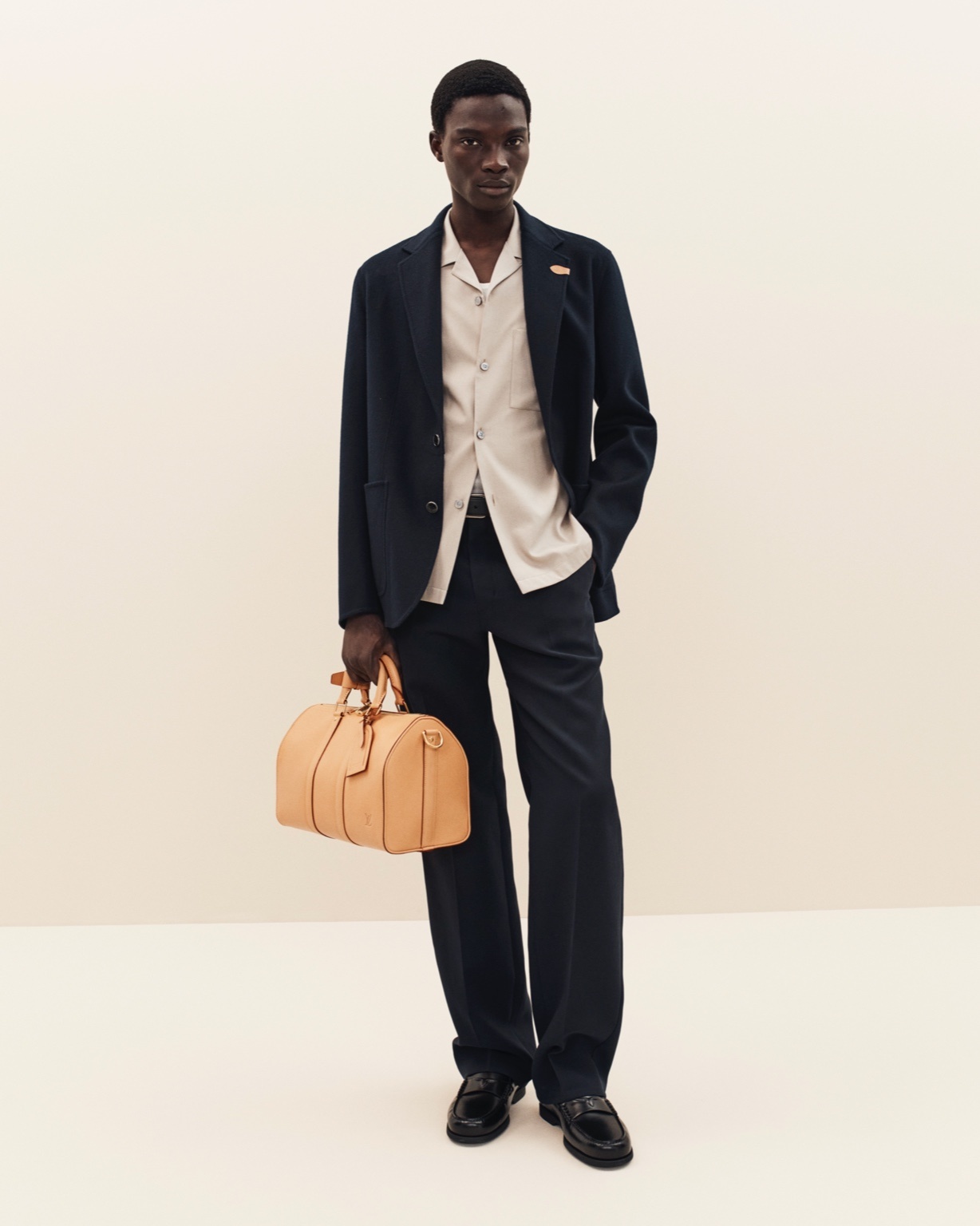
.jpg)
